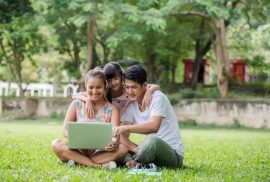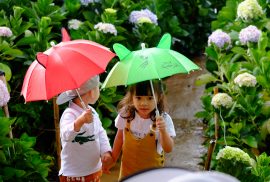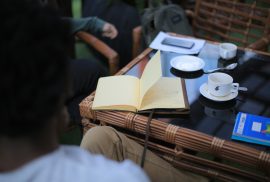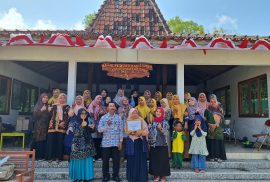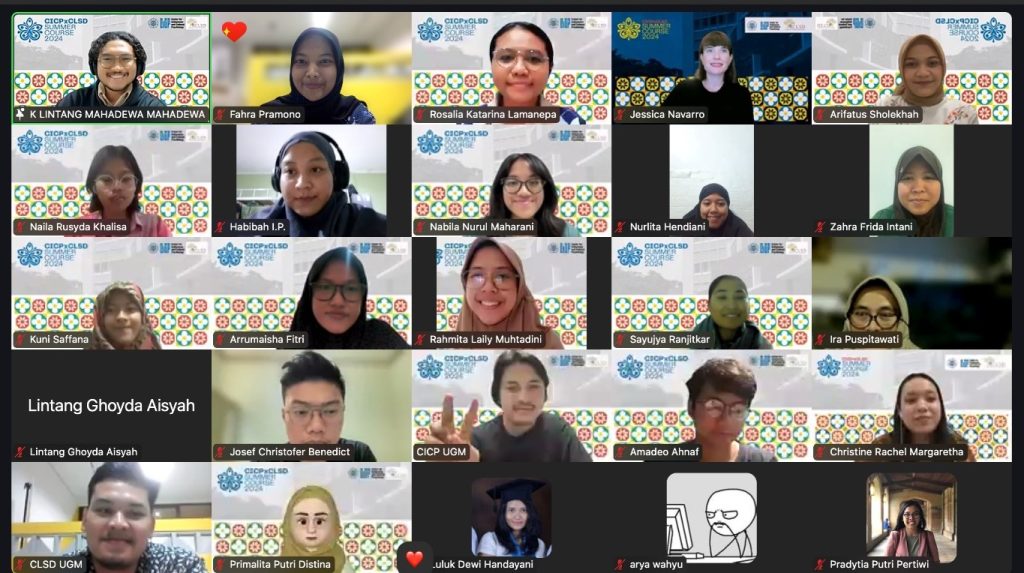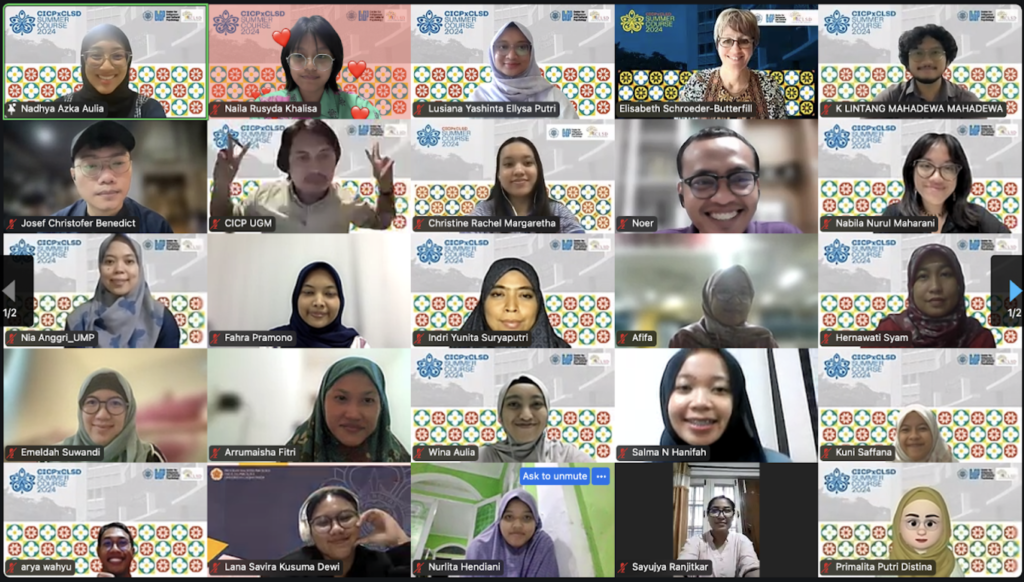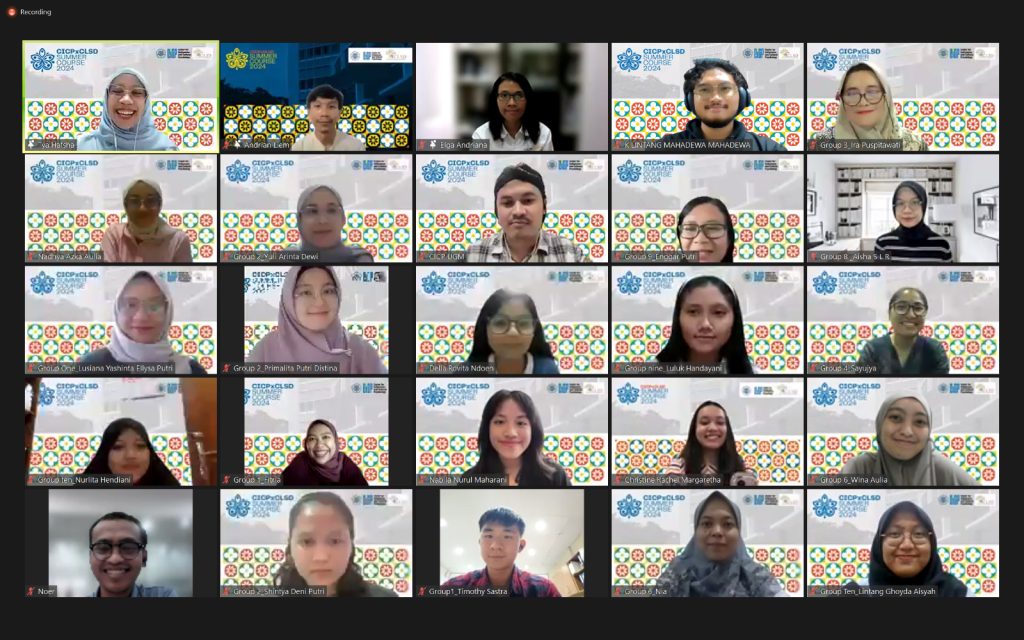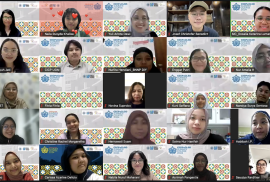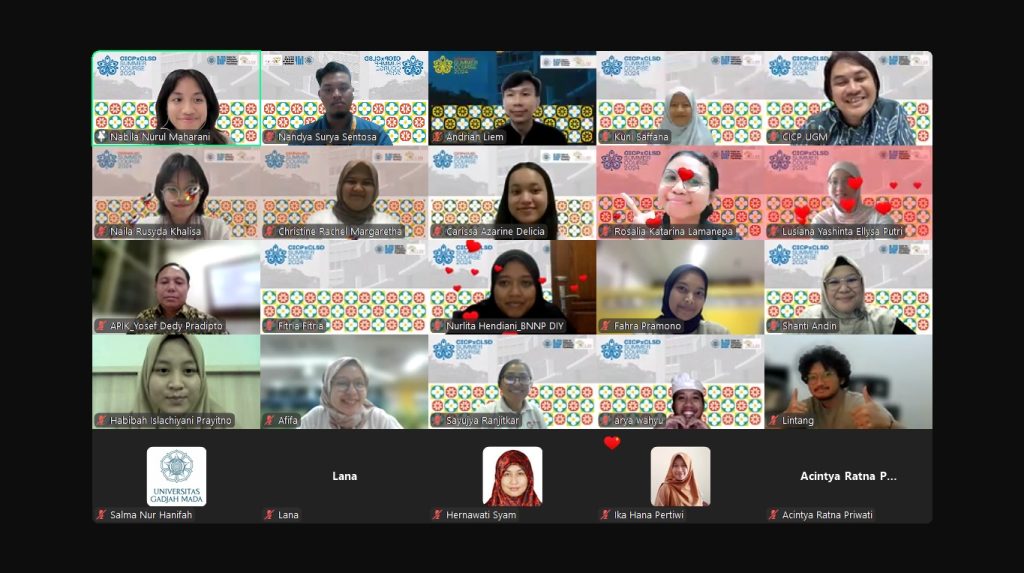Oleh: Ni Nyoman Putri Pradnyandari | Penyunting: Muhammad Ikbal Wahyu Sukron, S.Psi., M.A.
Masa remaja menjadi periode yang cukup menantang mengingat adanya perubahan di berbagai domain perkembangan, yaitu fisik, emosi, dan sosial (Santrock, 2020). Perubahan fisik dan hormon sering kali menjadi sumber ketidaknyamanan bagi remaja. Perubahan emosi yang intens juga menjadi penanda khas dari periode ini. Selain itu, remaja banyak melakukan eksplorasi identitas diri dan ingin menjadi bagian dari suatu kelompok. Remaja akan lebih sering menghabiskan waktu bersama teman sebayanya dibandingkan dengan orang tua. Bagi remaja, penerimaan dan pengakuan dari teman sebaya adalah sumber penting dari rasa harga diri dan keterikatan sosial, yang erat kaitannya dengan perkembangan psikologis yang sehat (Lin & Guo, 2024).
Perubahan yang kompleks terkadang dapat menimbulkan permasalahan pada kehidupan remaja. Permasalahan yang kerap muncul, yaitu masalah akademik, penilaian diri negatif akibat perbandingan sosial, kebingungan identitas, kesulitan beradaptasi di lingkungan sosial, masalah hubungan interpersonal seperti konflik dengan orang tua, penolakan dan pengucilan teman sebaya (Lin & Guo, 2024). Remaja yang kurang mampu mengatasi masalah secara efektif cenderung berisiko mengalami masalah kesehatan mental (Sulistiowati dkk., 2022).
Masa remaja menjadi periode kritis untuk timbulnya masalah kesehatan mental. Gangguan emosi seperti depresi dan kecemasan adalah masalah yang paling umum terjadi di kalangan remaja (Merikangas dkk., 2010). Menurut World Health Organization (2021), satu dari tujuh remaja berusia 10-19 tahun mengalami gangguan mental. Hasil survei Indonesia National Adolescent Mental Health menunjukkan bahwa satu dari tiga remaja berusia 10-17 tahun mengalami masalah kesehatan mental (Center for Reproductive Health, University of Queensland, & Johns Bloomberg Hopkins School of Public Health, 2022). Masalah kesehatan mental remaja perlu mendapat perhatian khusus dari berbagai pihak mengingat pengaruhnya yang besar terhadap kesejahteraan hidup.
Masalah kesehatan mental yang terjadi di kalangan remaja dapat disebabkan oleh rendahnya kesadaran remaja untuk mencari bantuan (Syakarofath & Widyasari, 2023). Sebagian remaja masih merasa enggan mencari bantuan saat mereka kesulitan mengatasi masalah dan merasakan ketidaknyamanan. Remaja lebih memilih memendam perasaan dan masalahnya sendiri daripada bercerita kepada orang lain karena takut dianggap lemah dan dijauhi. Remaja sering kali melakukan penundaan yang cukup lama untuk mencari bantuan.
Menurut Ogden (2023), perilaku mencari bantuan (help-seeking behavior) dalam konteks kesehatan adalah tindakan seseorang untuk mendapatkan bantuan eksternal dalam menangani masalah kesehatan yang dialami. Ajzen (1991) mengemukakan tentang theory of planned behavior yang menjelaskan proses munculnya suatu perilaku. Teori tersebut menunjukkan bahwa help-seeking behavior tidak muncul secara spontan, tetapi didahului oleh proses kognitif. Proses kognitif ini meliputi keyakinan seseorang terhadap konsekuensi dari perilaku mencari bantuan apakah bermanfaat atau tidak, kemudian sejauh mana lingkungan sosial mendukung perilaku seseorang mencari bantuan, serta keyakinan seseorang untuk mampu menerapkan perilaku mencari bantuan. Hal-hal tersebut akan memengaruhi niat seseorang. Semakin kuat niat yang dimiliki seseorang, maka perilaku mencari bantuan pun cenderung terjadi.
Sikap enggan atau menunda mencari bantuan dapat menghalangi remaja mendapatkan penanganan yang tepat. Pinto dkk. (2014) menjelaskan bahwa masalah kesehatan mental remaja yang tidak mendapatkan penanganan yang tepat akan menurunkan kualitas hidup dan menghambat perkembangan seseorang. Hal tersebut juga akan memicu kerentanan remaja terlibat dalam perilaku berisiko seperti penyalahgunaan narkotika, konsumsi alkohol, perilaku seksual yang tidak sehat, kriminalitas, self-harm, dan percobaan bunuh diri. Hal-hal tersebut dapat meningkatkan risiko penyakit dan kematian dini pada remaja.
Menyadari pentingnya perilaku mencari bantuan pada remaja, maka perlu dilakukan suatu upaya untuk membentuk perilaku mencari bantuan dalam hal kesehatan. Upaya yang dapat dilakukan oleh remaja yaitu membangun self-awareness (kesadaran diri). Menurut Rickwood dkk. (2005), remaja dengan self-awareness yang tinggi akan mampu mengenali emosi yang dirasakan, lebih menyadari hal yang menjadi kebutuhan mereka untuk merasa lebih baik, dan cenderung lebih mampu menerima kelebihan maupun kekurangan diri. Hal ini akan mendorong remaja untuk lebih terbuka meminta bantuan ketika mereka membutuhkannya.
Selain itu, lingkungan sosial, baik dari keluarga, teman, maupun guru memiliki peran krusial untuk mendorong remaja secara aktif mencari bantuan (Eigenhuis dkk., 2021). Misalnya, pemberian informasi layanan kesehatan dan edukasi kesehatan dari pihak sekolah untuk meningkatkan literasi kesehatan remaja. Selain itu, teman sebaya dapat menjadi sumber dukungan emosional untuk remaja agar mencari bantuan ketika sedang merasa tidak baik-baik saja. Orang tua juga dapat menjadi sumber dukungan berharga bagi remaja untuk memulai proses rujukan ke bantuan profesional. Penelitian Hellström dan Beckman (2021) menyatakan bahwa remaja sangat membutuhkan orang dewasa untuk hadir membantu dan mendengar kebutuhan mereka.
Kesadaran akan pentingnya mencari bantuan menjadi salah satu langkah penting dalam menciptakan generasi penerus bangsa yang lebih sehat, lebih sejahtera, dan lebih berdaya. Pencarian bantuan memiliki potensi untuk menurunkan tingkat keparahan, mempercepat proses pemulihan, dan mengurangi risiko timbulnya masalah kesehatan yang lebih serius di kemudian hari. Ketika remaja mau menerapkan perilaku mencari bantuan, maka beban yang selama ini mereka pendam dan tumpuk terlalu lama perlahan akan berkurang. Remaja dapat mencari bantuan dengan mulai berani bercerita ke orang terdekat, bergabung dengan komunitas yang suportif, dan mencari bantuan profesional di unit layanan kesehatan terdekat maupun mengakses aplikasi layanan kesehatan online. Ingatlah bahwa mencari bantuan bukan tanda kelemahan, melainkan bentuk kepedulian dan kasih sayang terhadap diri sendiri.
Referensi
Ajzen, I. (1991). The theory of planned behavior. Organizational Behavior and Human Decision Processes, 50, 179-211. https://doi.org/10.1016/0749-5978(91)90020-T
Center for Reproductive Health, University of Queensland, & Johns Bloomberg Hopkins School of Public Health. (2022). Indonesia—National Adolescent Mental Health Survey (I-NAMHS): Laporan Penelitian. Pusat Kesehatan Reproduksi.
Eigenhuis, E., Waumans, R. C., Muntingh, A. D. T., Westerman, M. J., Van Meijel, M., Batelaan, N. M., & Van Balkom, A. J. L. M. (2021). Facilitating factors and barriers in help-seeking behaviour in adolescents and young adults with depressive symptoms: A qualitative study. PLOS ONE, 16(3), e0247516. https://doi.org/10.1371/journal.pone.0247516
Hellström, L., & Beckman, L. (2021). Life challenges and barriers to help seeking: Adolescents’ and young adults’ voices of mental health. International Journal of Environmental Research and Public Health, 18(24), 13101. https://doi.org/10.3390/ijerph182413101
Lin, J., & Guo, W. (2024). The research on risk factors for adolescents’ mental health. Behavioral Sciences, 14(4), 263. https://doi.org/10.3390/bs14040263
Merikangas, K. R., He, J., Burstein, M., Swanson, S. A., Avenevoli, S., Cui, L., Benjet, C., Georgiades, K., & Swendsen, J. (2010). Lifetime prevalence of mental disorders in U.S. adolescents: Results from the National Comorbidity Survey Replication–Adolescent Supplement (NCS-A). Journal of the American Academy of Child & Adolescent Psychiatry, 49(10), 980–989. https://doi.org/10.1016/j.jaac.2010.05.017
Ogden, J. (2023). Health psychology: A textbook (7th ed.). McGraw Hill.
Pinto, A. C. S., Luna, I. T., Sivla, A. D. A., Pinheiro, P. N. D. C., Braga, V. A. B., & Souza, Â. M. A. E. (2014). Risk factors associated with mental health issues in adolescents: A integrative review. Revista Da Escola de Enfermagem Da USP, 48(3), 555–564. https://doi.org/10.1590/S0080-623420140000300022
Rickwood, D., Deane, F. P., Wilson, C. J., & Ciarrochi, J. (2005). Young people’s help-seeking for mental health problems. Australian E-Journal for the Advancement of Mental Health, 4(3), 218–251. https://doi.org/10.5172/jamh.4.3.218
Santrock, J. W. (2020). A topical approach to life-span development (10th ed.). McGraw-Hill Education.
Sulistiowati, N. M. D., Keliat, B. A., Ismail, R. I., Besral, B., Darsana, I. W., & Triana, I. K. D. L. (2022). Risk factors, protective factors, and mental health well-being among adolescents: A multiple mediator model. International Journal of Health Sciences, 6, 7826–7841. https://doi.org/10.53730/ijhs.v6nS5.11695
Syakarofath, N. A., & Widyasari, D. C. (2023). The attitude of help-seeking behavior preventing from mental health problems among adolescents living in district of Bondowoso. Jurnal Psikologi Integratif, 11(1), 25-39. World Health Organization. (2021). Mental health of adolescents. https://www.who.int/news-room/fact-sheets/detail/adolescent-mental-health



